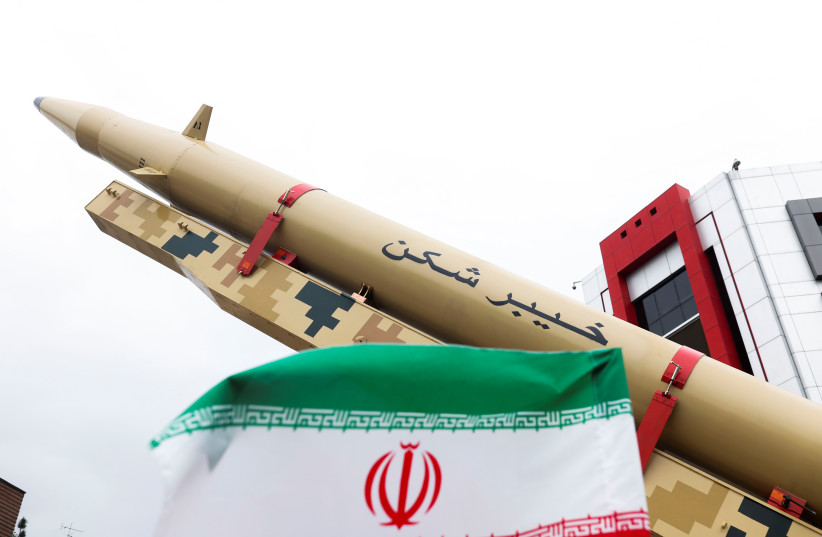Iran is likely supplying ballistic missiles to Russia, according to recent reports. The Wall Street Journal reported that the US has informed allies that Tehran sent ballistic missiles to Moscow.
“We are aware of the credible information provided by allies on the delivery of Iranian ballistic missiles to Russia,” EU spokesperson Peter Stano was quoted as saying.
The reports claimed that Iran has sent short-range ballistic missiles to Russia. Russia has been fighting a war against Ukraine for more than two years. Iran’s ties with Russia are not new; the countries have worked together for decades on various issues, and Iran increasingly tries to partner with Russia on numerous matters.
Iran’s Mehr News Agency also reported on the claims. Its Foreign Ministry has denied them.
Nasser Kan’ani, the spokesman of the Iranian Foreign Ministry, said, “As it has been emphasized many times, the Islamic Republic of Iran, while opposing the war, supports the political solution to resolve the disputes between Russia and Ukraine and end the military conflicts.”
“Since the beginning of the Ukraine crisis, the Islamic Republic of Iran has never been a part of this conflict and its continuation,” the senior Iranian diplomat stressed, adding that Tehran always supported the political solution and bilateral talks to end the crisis.

Iran International reported that an Iranian member of parliament has acknowledged that the country has supported Russia militarily.
A larger trend in global affairs
In its coverage of the issue, CNN noted that White House National Security Council spokesperson Sean Savett told the news agency in a statement that any transfer of Iranian ballistic missiles to Russia would represent a dramatic escalation in Iran’s support for the Kremlin in its invasion of Ukraine.
The CNN report observed that it was unclear when the missiles were delivered. What is known, CNN elaborated, is that “Ukrainian President Volodymyr Zelensky told allies at a meeting of the Ukraine Defense Contact Group in Germany on Friday that Ukraine urgently needed more air defense systems.”
The missile transfer story is only one part of a much larger trend in global affairs. A recent report at Reuters noted that US officials were concerned that Russia, China, and Iran were trying to influence US elections.
In addition, the heads of MI6 and the CIA recently warned about how the international world order has been under its greatest threat since the Cold War.
“The chiefs of MI6 and the CIA also said both countries stand together in resisting an assertive Russia and Putin’s war of aggression in Ukraine,” the BBC reported. “In a first-ever joint article, Sir Richard Moore [head of MI6] and [CIA Director] William Burns wrote in the Financial Times that they saw the war in Ukraine coming ‘and were able to warn the international community."
The Russian war on Ukraine is in focus because Russia is slowly pushing forward. Despite a Ukrainian counter-offensive near Kursk, Russia appears to be grinding down Ukrainian troops by the sheer size of the Russian army and its success in a war of attrition.
It is not clear, for one, how long Ukraine can hold on because its human resources are not endless and it is under strain. The Ukraine war has also consumed much of US Joe Biden’s presidency, and despite his and the West’s backing for Ukraine, Russia has lined up an impressive list of countries to accept its war effort. What that means is that countries like Iran, China, and Turkey all see a benefit to the war in Ukraine.
In turn, Russia has been manipulating the tensions in Asia with China to its benefit as well.
Moreover, given that Hamas’s October 7 attack on Israel is increasingly being regarded as another one of the challenges to the world order, because it was against Israel, which is a Western ally, it is notable that Russia did not condemn it.
Therefore, the story of the transfer of Iranian missiles to Russia is not just about the missiles; it is about the larger symbol.
While Iran wants to distance itself from the story officially, it knows that it has been helping Russia. Iran already supplied this country with its Shahed 136 drones. Iran is part of the war in Ukraine.
Regardless, Iran cannot send too many missiles to Russia because it likely needs them at home. Even though Iran has recently boasted about how it is ready to confront adversaries in the region, it needs its missiles to prop up the Syrian regime and to support proxies such as Hezbollah.
So, the reports of missile transfers to Russia should be seen as part of the broader context of Iran-Russia ties and how they impact the region. Reports that Turkey will attend an upcoming Arab League meeting and that Turkey and the Syrian regime could reconcile are also part of the story. The Syrian regime is a key ally to Moscow. Iran uses Syria to threaten Israel. Iran traffics weapons via Syria to Lebanon and also bases weapons in Syria. It is trying to change the world order.
